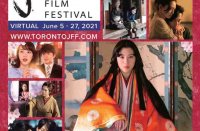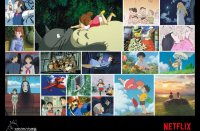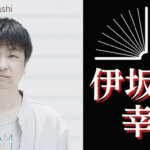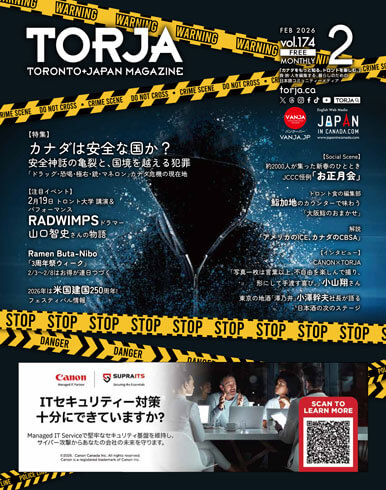The Mars rover confirmed that parts of Canada are colder than mars right now. Don’t believe me? Checkout this link:(https://www.mtlblog.com/news/weather/parts-of-canada-are-colder-than-mars-right-now/).
In films, however, winter is more fun, even beautiful. One of the most romantic stories of all time are usually set in winter—Edward Scissorhands (my version of romance). Or, for the you basic readers…Titanic?
In Japanese cinema, snow is gentle, majestic and often used as a kind of emotional subtext—take Kore-eda’s Palme d’Or-winning drama, Shoplifters for example. The story of neglected individuals who are bonded together under the concept of “family”. Though the film did not win an Oscars this year (was nominated for best foreign language film), the delicate moments shared between broken individuals set in Japan’s winter is devastating and lovely. Not only is the film striking, visually, it gives a clear insight on contemporary Japanese society and its dysfunctions. Applause to Kore-eda for drawing attention to social issues internationally, issues that are often dismissed in Japan.
Winter in Toronto is ending soon (hopefully). That being said, let’s take a look at five Japanese films to appreciate at home, in bed and take a look at dramas that unfold through the lens of Japanese cinematic auteurs. And, as hinted above, my idea of romanticism might be different from Titanic fuckers, I mean lovers. But here are 5 films that have snow and unconventional relationships. No Love Actually allowed here! Incest though…
1.Shoplifters, 2018
If the idea of family is a construct, why not construct it?
Shoplifters was the first Japanese work to be named best foreign film by the French Academy of Cinema Arts and Techniques since Akira Kurosawa’s “Kagemusha” in 1981. The film tells a story of “family”—a concept that needs to be reinforced often in order to exist. None of the family members are related. They, however, share the same roof and live life together. A series of events unfold over the course of a year and starts and ends in winter.
2.Love Letter, 1995
Love Letter is a classic romantic Japanese film directed by Japanese auteur, Shunji Iwai. It was shot almost entirely on the island of Hokkaido, the northernmost prefecture of Japan and Iwai captured the dreamlike beauty of town of Otaru.
It became a box-office hit in Japan and in other east Asian countries. It also garnered accolades abroad. In South Korea, it was one of the first Japanese films to be shown in cinemas since World War II, with 645,615 admissions. The film was the tenth highest grossing general release of the year in South Korea. Shunji Iwai idolized cinephiles with his earlier works, Fried Dragon Fish (1993) and Undo (1994), but this film was his theatrical debut feature that captured mainstream audiences as well.
The story is about the correspondence between Hiroko Watanabe, a widow living in Kobe and Itsuki Fujii, a woman who works at a small local library in Otaru. One day, Hiroko sends a letter to the place where her deceased fiancé used to live, expecting nobody to answer it; however, she receives the letter from a woman whose name is the same as her husband’s. Her affectionate would-be fiancé, Shigeru, convinces Hiroko to accompany him to Otaru to meet her ex-fiancé’s female namesake. Because of a series of strange coincidences, Hiroko and Itsuki never meet in person, but the strong bond is built between the pen pals.
3.5 Centimeters per Second, 2007
Beginning with the image of cherry blossoms falling slowly, 5 Centimeters per Second tells the tale of two young lovers, who were separated by chance but reunite. This 2007 film is produced, written and directed by Japanese auteur Makoto Shinkai, who is most known for his extraordinary supernatural love story about a boy and a girl who exchange bodies, Your Name, which is the most successful anime film in history (https://kotaku.com/your-name-is-the-highest-grossing-anime-worldwide-and-1791278393).
There is no element of science fiction in this film, unlike Your Name, and its ending is ambiguous, opens itself to multiple interpretations, leaving some fans unsatisfied. Although there is a corny sentimental piano score throughout, it gives a somewhat realistic view of the contemporary struggle many of us face against: separation, slowness of life, and how people drift into separate ways with time.
The story of Takaki Tono and Akari Shinohara, is set in Japan in the 1990s up until the present day. The two form a strong bond in elementary school, due to similar interests, but are separated and try to preserve their romantic relationship despite living far apart. The story is told in three chapters: “Cherry Blossom” (桜花抄), “Cosmonaut” (コスモナウト), and “5 Centimeters per Second” (秒速5センチメートル). The cruel winter is beautifully animated with gorgeous backdrops, accompanied with a hyper-real portrayal of Japanese modern cityscape.
Shinkai announced his long-awaited next film last December, and it will be Weather Girl: Weathering With You (or Tenki no Ko in Japanese), which will be released in Japan this summer (https://www.animenewsnetwork.com/news/2018-12-13/makoto-shinkai-new-anime-film-reveals-title-story-july-19-debut/.140748), according to Anime News Network.
4.Snow Woman, 2016
Directed by Korean-Japanese Kiki Sugino, who also stars as the mysterious woman with an icy breath that brings death, Snow Woman is a beautiful film that revises an old Japanese folklore. By setting it in postwar Japan and mashing up eras and realities, it refrains from conventional kaidan’s shocks and scare tactics—it is a beautiful and haunting ghost story.
Snow woman, or Yuki-onna is a spirit in a Japanese folklore. The tale has been adopted to films, books, but the most well-known version is that of Lafcafio Hearn’s 1904 collection, “Kwaidan: Stories and Studies of Strange Things”, which this film recounts.
5.My Man, 2014
My man is a 2014 Japanese taboo-baring drama directed by Kazuyoshi Kumakiri. It is based on Naoki award winning Kazuki Sakuraba’s novel: Watashi no Otoko, and is shot in the cold and icy setting of Hokkaido. The film won the Golden George at the 36th Moscow International Film Festival, and Fumi Nakaido, who plays Hana, won International RIsing Star Award for this film at New York Asian Film Festival and Best actress at 6th TAMA Film Festival. One of the most prominent Japanese actors, Tadanobu Asano won the award for Best Actor in Golden George at the 36th Moscow International Film Festival。
This film is not an easy to watch as it dives into an incestuous relationship between Hana and her legal guardian, Jungo. Hana, who was left orphaned after losing everything in a tsunami disaster, and Jungo, a distant relative adopts her nearby a shelter. It is a complex piece as Hana is not a mere victim in the relationship—the film digs deep into what binds them together, the two who are deeply affected by natural disaster in Japan.















































